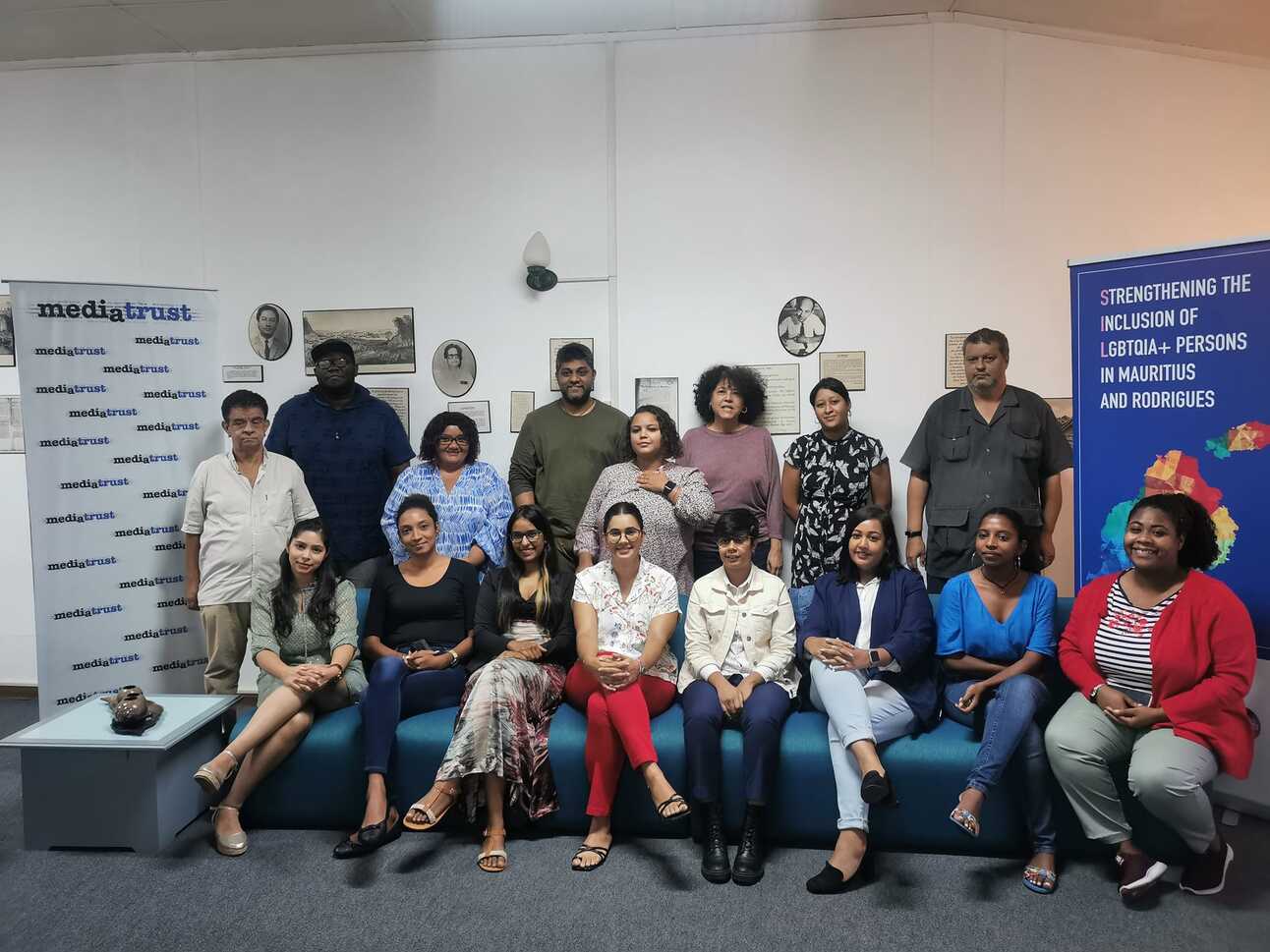- The Spark
- Posts
- Using deep fakes to show a bigger truth
Using deep fakes to show a bigger truth
Clever tech meant LGBTQ+ people could tell their stories without fear of reprisal
It’s Pride Month! I thought this week I’d write about how LGBTQ+ people tell their stories against the odds and how journalism plays a part in the fight for equality.
Back in 2020, in the midst of the pandemic, I watched something which stuck with me – a BBC Storyville documentary called Welcome to Chechnya: The Gay Purge. It told the story of gay men and women being persecuted in Chechnya, a region in Russia, and their perilous journey out of the country with the help of an extraordinarily brave underground team fighting to save them.
I’ve got strict rules for myself on keeping this newsletter focussed on the positive, but it’s hard given that I’ve got to write about Chechnya’s tyrannical leader Ramsan Kadyrov, and how he committed to “cleanse the blood” of LGBTQ+ people. The stories in the documentary were brutal and upsetting. But they got to be told, movingly and well, because the documentarians took a risk on emerging technology – and that in itself is the big win.
The doc was groundbreaking. To protect everyone involved, the production team used deep fake technology to disguise people’s faces and voices. This way the film crew could follow and film Chechnyans on their escape from the government-led campaign to detain, torture and execute them. Nothing like it had ever been broadcast before.
(Quick tangent – one of the reasons I find this so uplifting is getting to see “deep fake” technology being used to empower people. I know there are a lot of troubling ways AI can be used against us, but it’s really cool to see it being used not to trick a viewer, but to let us see more clearly than we could ever have before, and protect those at risk into the bargain.)
One of the people featured in Welcome to Chechnya is Anya, a 21-year-old lesbian whose uncle has found out about her sexuality and given her a choice: either she agrees to have sex with him or she will quietly and discreetly be killed. Evacuation coordinators, backed financially and logistically by a global network of queer organisations, kick into gear and plan Anya’s escape.
The visuals of Anya’s face are slightly hazy, hinting at something not quite being right. Yet watching it, her emotions, mainly fear, shine through and you really empathise with the gravity of her situation.
Similar technology was used recently for a BBC World Service documentary, Queer Egypt Under Attack. Producers used AI face-tracking technology to anonymise victims of anti-LGBTQ+ violence in Egypt, including clips of the humiliation that they have to endure, which are uncomfortable to watch.
Vanessa Bowles, the director, told Press Gazette about the challenges of filming: “We had to ensure that the footage was encrypted when we took it out of Egypt, we had to ensure that our contributors were safe, we had to build trust … by reassuring them that everything would be kept completely anonymous, we provided them with SIMs, with phones to make sure everything was untraceable. We visited them a few times without filming at all, explaining the process in detail, it was a very collaborative project.”
The level of risk that the individuals featured had to endure is difficult to comprehend. At my newsroom, we deal with legal risk when publishing stories, but this is nothing compared to the bravery and dedication of those who agreed to be filmed despite the dangerous, potentially life-ending, repercussions.
In my humble opinion, the storytelling is more compelling than it would have been in print because, despite the AI-altered appearances, the expressions and emotions of those featured are both true and identifiable. The situation for LGBTQ+ individuals may not have changed in Egypt nor Chechnya, but at least now we bear witness to what is happening, and can show solidarity with those being persecuted.
Man is least himself when he talks in his own person. Give him a mask, and he will tell you the truth
Najeeb Fokeerbux is the founder and president of the Young Queer Alliance, an NGO in Mauritius. While the rights of LGBTQ+ people are being challenged in many other African countries (check out the BBC news feed to see for yourself), Mauritius decriminalised same-sex relations last year. Najeeb worked closely with the media in his mission to promote equality for all. |  Najeeb Fokeerbux |
“The progress for LGBTQIA+ rights in Mauritius started dwindling around 2012. For one, I was not seeing the bigger legislative changes happening in terms of decriminalising homosexuality, marriage equality, legal recognition of trans people and protection against hate crimes.
Even though I was part of an existing LGBTQIA+ organisation, the community pressure was not there for the discriminatory practice to stop. I realised that the support of the community was key to pressing for change. All these led to me founding the Young Queer Alliance in early 2014.
We realised that changing the hearts and minds of the population would only be accomplished through mass outreach, and allowing the public to be closer to the lived realities of LGBTQIA+ people in Mauritius. We needed to normalise the population to queer issues and realities.
Previously, LGBTQIA+ reporting was too much of a caricature, mostly a thing to be made fun of. Press reporters did not understand the terms L-G-B-T-Q-I-A. The I-stories were not there. The LGBTQIA+ champions in their respective fields, such as the arts, public sector and other fields were not apparent. The community actions were not visible. Trans people were viewed as a thing of disguise and not taken seriously.
During the course of 2021 and 2022, we organised media training with local media houses. The training focused on proper reporting of LGBTQIA+ issues, use of inclusive languages by GLAAD [the American LGBTQ+ rights organisation], the dos and don’ts, intersectionality of identities, among others. Most of the big media houses attended.
Following the training, there has been a drastic improvement of LGBTQIA+ representation in the media. There is more empathy in reporting, the intersectionality between LGBTQIA+ identities and faith are being explored. Community actions are more diverse. The media activism is fuelling change.”

A group at the media training that Young Queer Alliance organised
Thank you so much for reading! As always, I’d love to hear your thoughts on this (or any others), just ping me a reply. And please do share this – forward to a friend, or you can find any of my older posts here – if you think others might find it interesting.
I’ve been writing weekly for a month and a half now and really want this newsletter to be as enjoyable for you as possible.
I’m hoping to interview the amazing journalist Patrick Strudwick soon about his world-changing investigations into LGBTQ+ issues, HIV, crime, poverty and addiction. All going well this should be coming in the next couple weeks, so keep an eye out for it.
Happy Pride Month folks!
Lucy Nash |  |